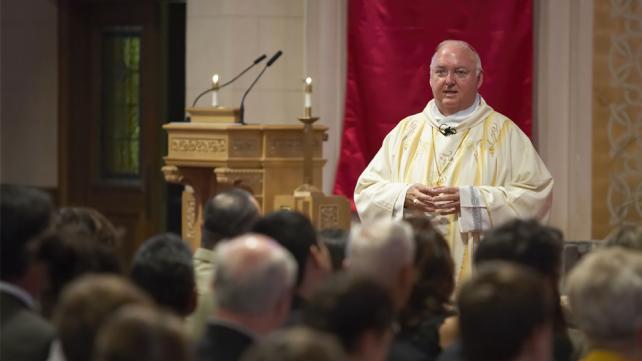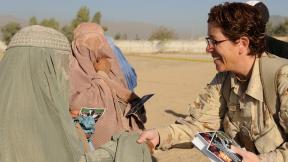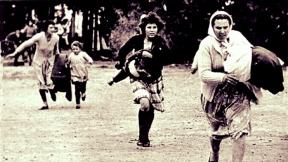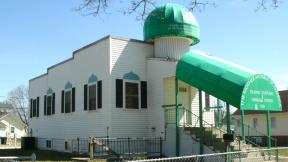
Since the September 11, 2001 terrorist attacks and the subsequent harassment of Muslims in America, many interfaith groups and churches across the country have been very supportive.
They have issued statements not only condemning the attacks, but also the intolerance and racism being leveled at Muslims, Sikhs and Arab-Americans. A number of groups have also organized and participated in interfaith prayer vigils and events related to helping victims of the bombing.
A number of churches and organizations though, are interested in doing more. They want to know how to reach out to their Muslim neighbors and friends in this difficult time. Below are some suggestions of simple things they can do to express their support and solidarity with Muslim-Americans.
1. In your next sermon, discuss the tragedy from a Muslim perspective
Many, many church leaders have discussed the September 11 tragedy in their congregations from a Christian perspective, encouraging healing, forgiveness and strength in this difficult time and offering support to victims' families based on Christian scripture.
Why not give a similar talk, but based on Islamic scripture, the Quran? Leaders can seek out the help of a local Imam or Islamic scholar to help them find relevant verses of the Quran or traditions of the Prophet Mohammed (peace and blessings be upon him). Or, to make the job more simple, they may simply rely on articles which have been written by Muslims in newspapers and magazines since the tragedy explaining the Muslim perspective.
After the sermon, speakers can distribute copies of a news article that discusses some positive things Muslims have done for victims of the attack, for instance, to show that Muslims have and are playing their part in this national tragedy.
If you are a church or interfaith group leader, you already have a relationship and strong rapport with your congregation or organization, so they will appreciate hearing an Islamic perspective from someone they trust and respect.
2. Develop a fact sheet based on your sermon
Develop a sheet with some basic facts about Islam and Muslims for the benefit of your congregation or group and others in your neighborhood and community. The sheet should include, for example the definition of Islam, the difference between the word "Islam" and "Muslim", the Islamic stance on terrorism, etc. One good example that you can use to develop your own fact sheet is the one published about a week after the bombing in the newspaper USA Today.
3. Invite a Muslim to speak to your congregation or group
When it comes to choosing a Muslim speaker, don't just aim for figureheads. You want someone who is not only an Imam or knowledgeable Muslim, but also someone who can communicate clearly in English, and ideally, has some experience in interfaith work.
Once you've selected your speaker, don't contact him or her right away though. Do some homework by discussing with your congregation or group what kinds of questions they want answered about Islam and Muslims. Do a brief survey so that the speaker can touch upon all of these points in his or her presentation.
Once you've got the list of questions or issues everyone wants addressed, contact the speaker, set a day and time for their visit and explain that there are certain questions your group or congregation would like answered. Fax or e-mail them to the speaker so he or she can prepare the presentation accordingly.
If you were unable to get this survey done, you can ask the Muslim speaker to start off his or her speech by asking the audience what they would like to know about Islam and Muslims so this can be addressed in the talk.
4. Protest anti-Muslim media bias
Much has been written about who the perpetrators of this horrific attack are. So far, the prime suspects have been a handful of people with Muslim names. But as the investigation continues, many media outlets have been careless in their reporting and have painted Islam and the entire Muslim community as terrorist and responsible for the crime.
Interfaith groups and congregations can help by writing and calling to point out stereotypical coverage. Perhaps members can fax news editors of errant media outlets a copy of the group or congregation's FAQs about Islam and Muslims to clarify misinformation.
5. Attend events hosted by the Muslim community
Mosques and Islamic centers across America have been holding prayer vigils, open houses and other activities related to helping themselves and fellow Americans heal from the pain of this tragedy and to explain the Islamic perspective on it.
Look out for such activities in the local newspaper or call mosques and Islamic centers in your area to find out if any of them will be holding such an event. If so, arrange to go as a group with your congregation or interfaith organization to the event. Most people would feel shy going alone to such an activity, but there is strength in numbers.
This could lead to further cooperation between your congregation or group and the Islamic center or mosque that you visit.
6. Speak up for Islam and Muslims in their absence
Encourage your congregation or group to politely correct those who make ignorant or prejudicial statements about Islam and Muslims. Also ask them to hand the person a copy of your fact sheet.
7. Distribute a sheet to your congregation on what they individually can do
You can rewrite or distribute our page on what non-Muslims can do for their neighbors to your congregation.
8. Suggest to a mosque-goers in your area what they can do
While some mosques have been active in outreach since the terrorist attacks, others are just sitting silent in fear. Maybe you can meet with them and suggest some ideas to develop a relationship with the neighborhood that can lead to better understanding between Muslims and non-Muslims.








Comments
Great article. I'll be forwarding to my local area church.
Location
Add new comment